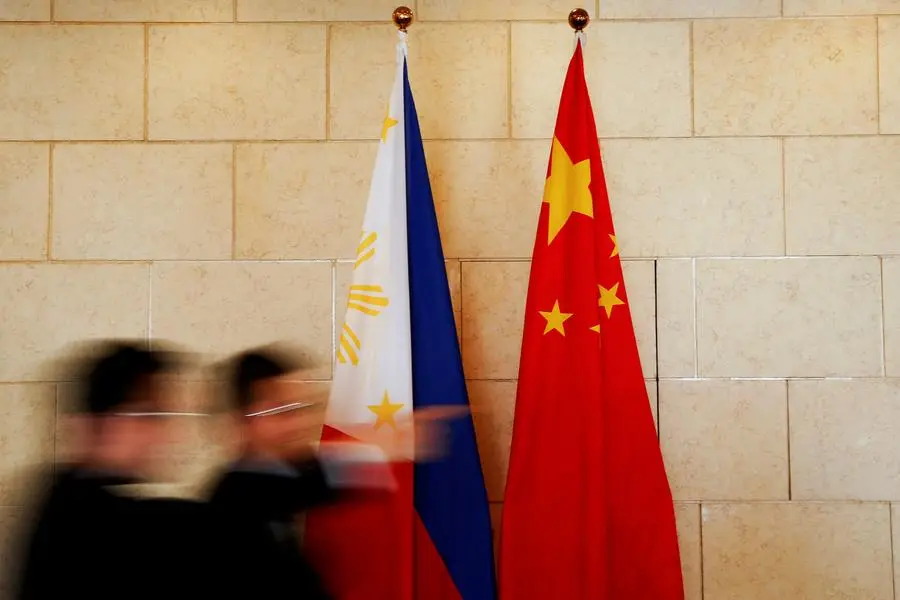PHOTO
The ongoing political struggle between BBM and the Duterte-Imee alliance is being fought on several issues. The ones presently capturing the headlines is Charter change and the people's initiative fight. The second and the more serious one is the conflict over the ICC investigation, which could lead to dire consequences for the Duterte family and their close allies.
There is a third major area of conflict which could have longer lasting effect on the country and its political stability. This is the issue of which world power the Philippines will align with. During the Duterte presidency, it was very clear that at the beginning of his term, Duterte aligned himself with the Beijing regime. He also had harsh words for American leaders, to the point of calling then president Obama a racist term.
Near the end of his term, however, Duterte may seem to have moderated his policy of aligning with China. Perhaps this was because despite all the Philippine attempts to placate Chinese demands, the Chinese Coast Guard retained its powerful presence in the West Philippine Sea and continued to prevent Filipino fishermen from sailing in Philippine waters.
The election of BBM has seen a dramatic reversal of these policies. The EDCA sites have been increased from five to nine and possibly even more in the future. Philippine forces have held military and naval exercises with American and other allied forces.
Recently, the Philippines has entered into an agreement with Vietnam that could lead to joint military and naval exercises. This turnaround of alliance from Beijing to Washington DC is based on two premises. The first premise is that the US will defend the Philippines in case of any invasion or armed intervention. This conclusion would seem to be very clear for as long as there is conflict, violent and nonviolent, between the United States and China.
The second premise is that America and China will be enduring rivals. There are those who say that it is possible that someday, these two superpowers may be able to find a way to live in harmony with each other.
There is even talk that the United States and China might even strike a grand bargain that establishes specific spheres of influence. While this world vision may seem enticing, my readings on the history of great power rivalry strongly suggest that this is not possible.
Over the past 200 years, none of the great power rivalries ever ended with the harmonious meeting of minds. Instead, rivalries continued until one side could no longer carry on the fight or until both sides united against a common enemy.
In a study by three political scientists - Michael Colaresi, Karen Rasler, and William Thompson, it is recorded that there have been 27 great power rivalries since 1816. These conflicts lasted for more than 50 years on the average and ended in one of three ways. According to their study, 19 of the 27 ended in a war, with one side beating the other into submission. An example is when the United States and its allies defeated Germany in two world wars.
Another six rivalries ended with two sides aligning against a common enemy. Historically, therefore, there is very little or no chance at all in this ongoing America versus China rivalry to end harmoniously.
The possibility therefore is that there will be an epic struggle between China and the United States. Although it is currently the weaker state, China under President Xi Jinping has devoted time and resources to building a fortress around China and himself.
The United States has not totally ruled out any form of cooperation with China. However, it seems to be pursuing a strategy that entails US containment of China. Present analysis of this conflict seems to conclude that China is not a strong threat at present because of the country's current economic problems. Some indicators of this problem are: economic growth has slowed down, youth unemployment of more than 20 percent is the highest in its history and there are serious problems in the property sector. There are recent news that the second largest real estate developer, China Evergrande, has declared bankruptcy.
There is also firsthand information that many American corporations in China are either moving to other countries or downsizing. I know for a fact that one American corporation in Shanghai for more than two decades has recently decided to relocate its main operations to Canada. I feel that the present strategy of Xi Jinping to further tighten controls over the business sector will only make the situation worse. The apparent persecution of Jack Ma and other Chinese entrepreneurs will only deepen the insecurity of others like them.
According to some economists, the result of this tightening is that the private sector will save more, invest less and take fewer risks.
From the Philippine point of view, it can formulate a foreign policy that assumes that this superpower rivalry will continue until one side prevails over the other in one form or another.
Copyright © 2022 PhilSTAR Daily, Inc Provided by SyndiGate Media Inc. (Syndigate.info).





















